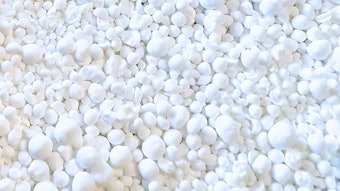Researchers from the University of Minnesota, Temple University and Jyväskylä University, under the leadership of the University of Pennsylvania, have developed nano-assemblies of Janus dendrimers, termed dendrimersomes, for the delivery of cosmetics, cancer drugs, gene therapy, proteins, imaging and diagnostic agents.
The team's research, published in the journal Science, chose the dendrimers based on their ability to mimic cellular membranes for targeted delivery of materials to the skin. The dendrimersomes reportedly are stable, bilayer vesicles that spontaneously form the exact chemical composition of Janus dendrimers. In comparison to other vesicles for skin delivery such as liposomes and polymersomes, these dendrimersomes reportedly offer stability, monodispersity, tenability and versatility.
To develop this technology, the researchers chemically coupled hydrophilic and hydrophobic dendrons to create amphiphilic Janus dendrimers in a number of morphologies including cubosomes, disks, tubular vesicles and helical ribbons, and confirmed the assembled structures using cryogenic transmission electron microscopy and fluorescence microscopy.
According to the researchers, the bilayer capsules developed have superior mechanical properties to standard liposomes. These dendrimersomes combine the biological function of phospholipid liposomes with the mechanical strength of polymersomes. They are said to be stable in a large variety of media and temperatures and uniform in size; in addition, they are tunable by temperature and chemistry and impermeable to encapsulated compounds.
As the thickness of the dendrimersomes is similar to that of natural bilayer membranes, incorporating biological components into the vesicle membranes is reportedly easier.
According to the report, dendrimersomes are capable of incorporating pore-forming proteins, can assemble with structure-directing phospholipids and block copolymers, and offer a molecular periphery suitable for chemical functionalization without affecting their self-assembly.
While liposomes mimic cell membranes assembled from natural phospholipids or from synthetic amphiphiles, liposomes reportedly are not stable and vary widely in size, requiring stabilization and fractionation for all practical applications. Conversely, polymersomes are stable but polydisperse, and most are not biocompatible, requiring scientific intervention to combine the best properties of both for nanomedicine.
The benefits of this work for personal care are relevant for skin delivery and could provide personal care formulators with a new means of increased efficacy while requiring less active.










